Sometimes the pressures of existing can begin to weigh heavily on us and we start to consider that we may need to ask for a little help from our loved ones. Maybe it’s because we have a lot on our plate just by nature of who we are and the world we live in. Other times we are those people that are seemingly so full of strength and energy to those who need a helping hand, so much so that they don’t hesitate to ask when they need support. Frequently though, it feels like I am perpetually and simultaneously in both states of existence; always overwhelmed by the needs of others and constantly considering asking for help in managing my own needs because of it. I’ve come to realise that I have a complicated relationship with needing, being needed, and asking for help. I wonder often whether I use helping others to distract myself from helping myself. Then I feel bad about asking for support because I might not have had to, were I putting my own oxygen mask on first. Maybe this is ok, though. Realistically, we all go through times when we have the energy to spare for the needs of others and times when we need help coping ourselves.
We’re now well into year three of a pandemic that has vastly changed our lives in many obvious but also many subtle ways. The ways in which we all interact with each other have been strained and altered. Physical touch in a greeting has become a bit of an awkward dance of managing people’s comfort levels. At least, dramatically more so than it was before all this. Being isolated at home has become the default for many, making connecting in the real world all the more challenging and exhausting. 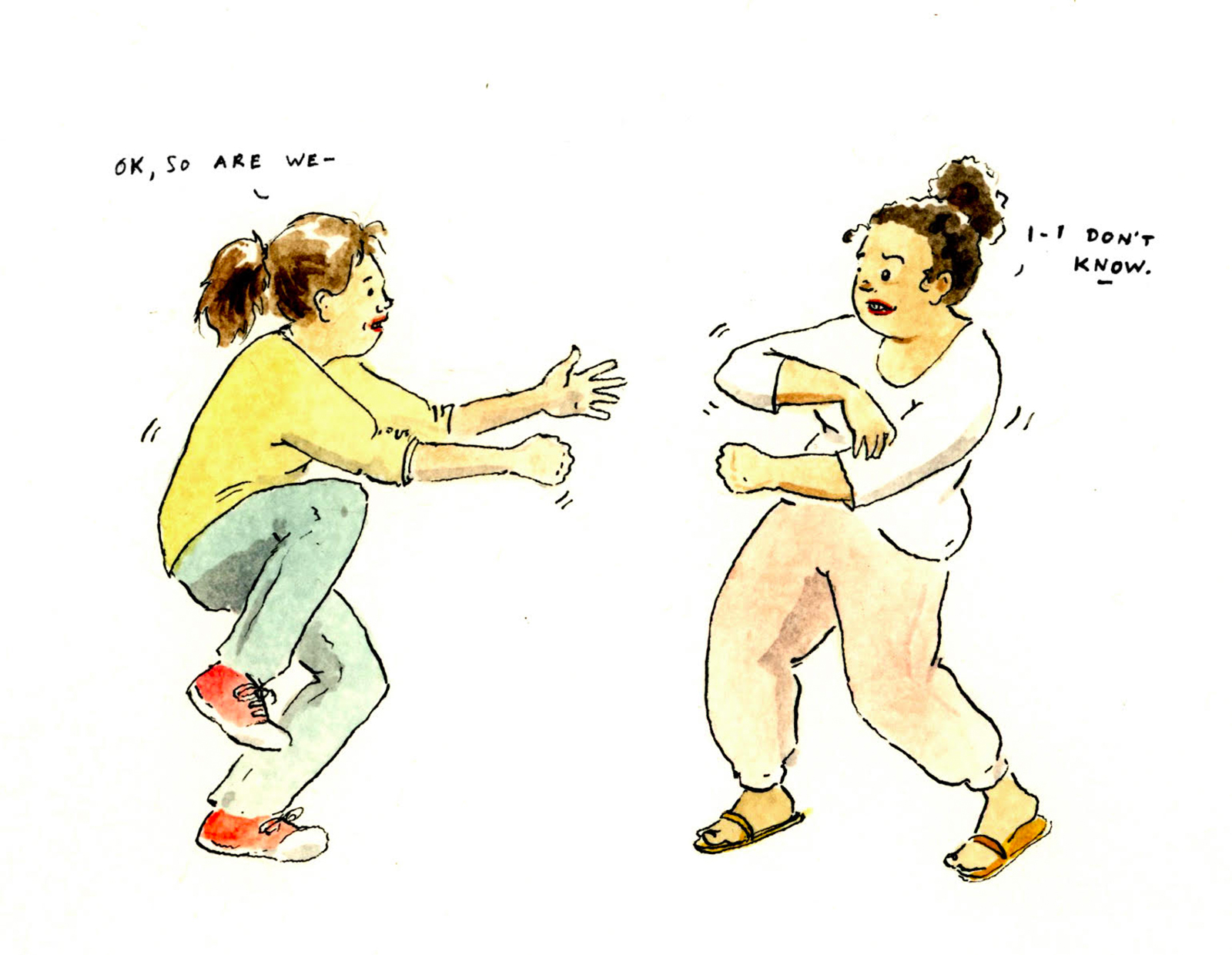 Social landscapes have changed: two years away from consistent partying has meant that many of your friends have taken the opportunity to leave that part of their lives behind. Maybe many others spent the past two years getting “too” wrapped up in their substance use (something we each get to define for ourselves, of course) during a time when it felt like the “rules” had changed or were no longer applicable. Perhaps you are one of these two kinds of people, or perhaps somehow you are both. Either way, the nature of being there for each other has changed as well.
Social landscapes have changed: two years away from consistent partying has meant that many of your friends have taken the opportunity to leave that part of their lives behind. Maybe many others spent the past two years getting “too” wrapped up in their substance use (something we each get to define for ourselves, of course) during a time when it felt like the “rules” had changed or were no longer applicable. Perhaps you are one of these two kinds of people, or perhaps somehow you are both. Either way, the nature of being there for each other has changed as well.
One of those catchphrases of the pandemic that I had heard semi-frequently was, “We all need a little bit more than anyone can give right now”. I think it’s been one of the few of those repetitively uttered catchphrases that’s actually resonated with me during all this. My work life through much of covid had been about providing care to a handful of little ones and their parents (being a nanny really is more about family support than just babysitting) and that definitely took its toll. That would have been manageable, though, had I not been cohabitating with a particularly emotionally exhausting partner that required a great deal of attention and care. You know, the kind of partner that (pandemic or not) always needs quite a lot more than really any one person can give, and yet expects all their needs to be met solely by their significant other, but I digress.
Throughout all of that, I was cut off from some of the people that depended on me the most in my pre-covid life, and was isolated from those that I frequently leaned on as well. I’ve always had difficulty asking for help, and pandemic-related social isolation had made some of the things or people I needed impossible to access, to the point of developing a sort of resentment towards being needed by others. Things have now returned to some semblance of the “normalcy” we all had in the beforetimes (case numbers be damned??), but whether it’s because of the last two and a half years or the last thirty, these feelings of overwhelm still linger and have their continued effects.
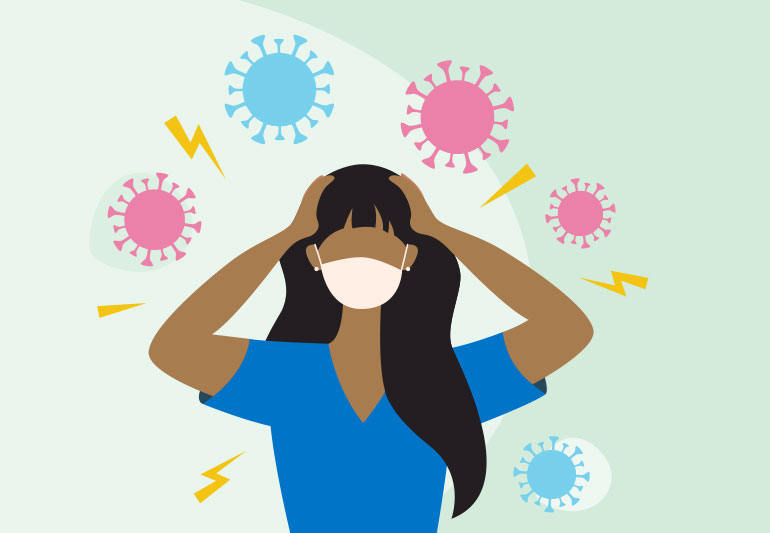 In any case, these last couple of years have been pretty hard on all of us in one way or another. Due to the pandemic things like alcoholism, chaotic substance use in general, poor mental health, suicidal ideation, etc. increased in a statistically significant way. Of course, those of us already struggling with these things beforehand were disproportionately affected by this phenomenon. Back in January healthcare professionals were sounding the alarm bells over an already struggling healthcare system potentially facing a severe shortage of nurses due to pandemic burnout. Fast forward to now and we’re seeing an “unprecedented” (there’s that word again) staffing shortage of nurses in Ontario hospitals. Probably not surprisingly, there was also a drastic increase in opioid related deaths over the course of the pandemic, which worsened as time went on. Possibly the one silver lining to all of this is that suicide rates actually stayed the same or even decreased in some places during the pandemic (though it’s notable that this is not the case when isolating numbers for youth and BIPOC folks). Various communities in Canada are now seeing a decrease in overdose related deaths with recovery and harm reduction based approaches, a trend we can only hope continues.
In any case, these last couple of years have been pretty hard on all of us in one way or another. Due to the pandemic things like alcoholism, chaotic substance use in general, poor mental health, suicidal ideation, etc. increased in a statistically significant way. Of course, those of us already struggling with these things beforehand were disproportionately affected by this phenomenon. Back in January healthcare professionals were sounding the alarm bells over an already struggling healthcare system potentially facing a severe shortage of nurses due to pandemic burnout. Fast forward to now and we’re seeing an “unprecedented” (there’s that word again) staffing shortage of nurses in Ontario hospitals. Probably not surprisingly, there was also a drastic increase in opioid related deaths over the course of the pandemic, which worsened as time went on. Possibly the one silver lining to all of this is that suicide rates actually stayed the same or even decreased in some places during the pandemic (though it’s notable that this is not the case when isolating numbers for youth and BIPOC folks). Various communities in Canada are now seeing a decrease in overdose related deaths with recovery and harm reduction based approaches, a trend we can only hope continues.
Those last paragraphs got a little dark, but I think it’s important to acknowledge that so many of us have had to deal with heaps of change, trauma, isolation, loss, and general hardship, since March 2020 especially, and many of us likely still don’t know exactly how we have been and will be affected by all this in the long-term. When I think about all the people I care about or come across in life, I’m hard pressed to think of a single person that hasn’t dealt with some sort of crisis or extreme hardship within the last few years. These two and a half years have been rife with challenge and uncertainty, and neither the pandemic nor its widespread fallout are over yet. Many question whether any of it will ever be truly “over” at all. Basically, my point is that we all definitely need a little bit more than any of us can realistically give right now, and maybe that’s ok.
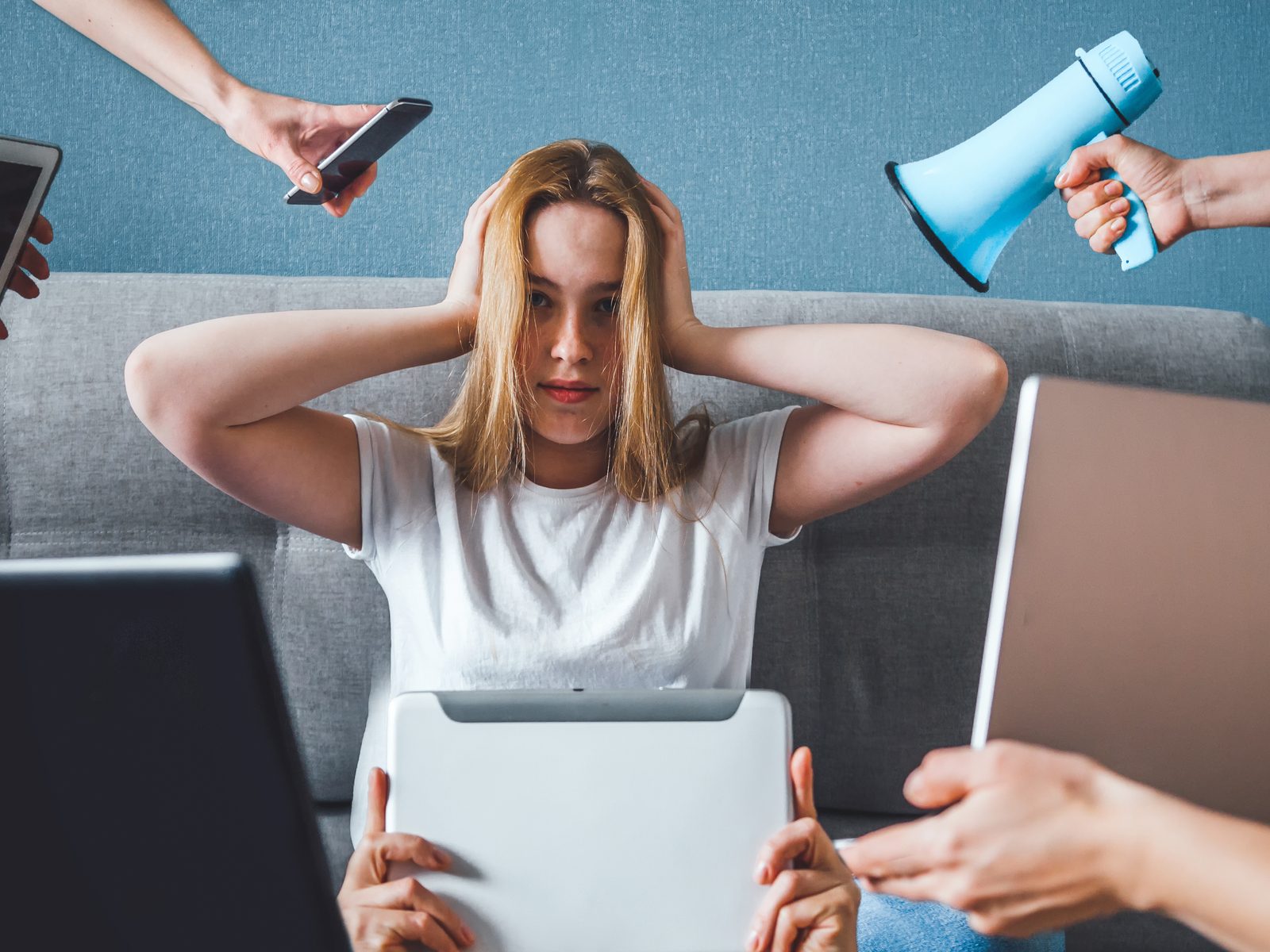 It’s ok to ask for help, but something I’m trying to work on learning is that it’s also ok to say “no” when help is requested. I’m definitely one of those people that has a LOT of friends, family, partners, etc., all of whom I care about deeply, but I don’t necessarily have the time or energy to express that to everyone. However, when asked for help with something, someone to talk to, or even just a person to hang out with, I default to “YES!” because I genuinely want to DO ALL THE THINGS!! Generally this leads to me overbooking myself and stuffing every waking moment (including ones where I really should be sleeping) with some sort of plan or activity or work commitment to the point of exploding. Of course, it’s me that ends up exploding, not my forever incorporeal “schedule”. This presents in stress, overwhelm, a complete lack of self-care including – sometimes – personal hygiene, emotional breakdowns, lack of sleep, lack of food and inevitable depressive phases frequently characterised by all of the above, but with the addition of (though not limited to) too much food, too much sleep, not enough work, not enough connecting with people, lack of exercise, etc. Living in extremes has been exhausting, and isn’t sustainable in the long-term. Maybe some of you can relate.
It’s ok to ask for help, but something I’m trying to work on learning is that it’s also ok to say “no” when help is requested. I’m definitely one of those people that has a LOT of friends, family, partners, etc., all of whom I care about deeply, but I don’t necessarily have the time or energy to express that to everyone. However, when asked for help with something, someone to talk to, or even just a person to hang out with, I default to “YES!” because I genuinely want to DO ALL THE THINGS!! Generally this leads to me overbooking myself and stuffing every waking moment (including ones where I really should be sleeping) with some sort of plan or activity or work commitment to the point of exploding. Of course, it’s me that ends up exploding, not my forever incorporeal “schedule”. This presents in stress, overwhelm, a complete lack of self-care including – sometimes – personal hygiene, emotional breakdowns, lack of sleep, lack of food and inevitable depressive phases frequently characterised by all of the above, but with the addition of (though not limited to) too much food, too much sleep, not enough work, not enough connecting with people, lack of exercise, etc. Living in extremes has been exhausting, and isn’t sustainable in the long-term. Maybe some of you can relate.
What I call a “depressive phase” is really just what many people these days refer to as “burnout”. I feel like that’s a word we didn’t hear as much fifteen years ago. I also feel like it’s the word that the neurotypicals of the world landed on for what can be arguably described as a completely “normal” reaction to a constantly overwhelming world; a reaction that has characterised vast swathes of people in my generation. If you google the symptoms of depression and burnout, they sound awfully similar. Can we call it “clinical depression” if the world has been clinically depressing? Perhaps not, though I’m starting to sound a little dark again. Maybe it’s my burnout talking (or maybe it’s just my post-structuralist and nihilistic nature…).
The good thing about burnout is that it can be avoided with a little time devoted to self-care. Fellow Trip! Peer wrote some super helpful tips on how to get yourself thinking about self-care here as well as some covid-specific tips and stress management strategies here. They’re super quick and worthwhile reads, so definitely take a look! For me, however, self-care starts with stronger boundaries and learning to say “no”. I’m here to tell you that it’s ok to need help sometimes, and it’s ok to ask for help when you need it, but it’s also ok to not be available for someone in need. We all have to put our own oxygen mask on first – or like Nicole said – you can’t pour from an empty cup, and that requires time to yourself to slow down, think, have some stillness in life, and really check in with yourself. Now when faced with a request for aid or attention, I do a better job of pausing to think: 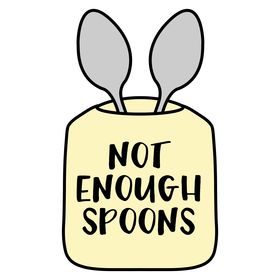 “Do I actually want to do the thing, or am I just trying to people-please?” Sometimes that results in more solo time devoted to self-care, but other times this ends up with me doing the thing, but also knowing that I’m doing the thing for myself as well. I might be right in the middle of something when the family member I live with asks me to run to the store for them, but a few moments of thought help me realise I could actually use the break and get another couple thousand daily steps out of it at the same time! Just a little bit of pause to hack my brain or mentally reframe things means I can consciously do things to take care of myself while helping others as well.
“Do I actually want to do the thing, or am I just trying to people-please?” Sometimes that results in more solo time devoted to self-care, but other times this ends up with me doing the thing, but also knowing that I’m doing the thing for myself as well. I might be right in the middle of something when the family member I live with asks me to run to the store for them, but a few moments of thought help me realise I could actually use the break and get another couple thousand daily steps out of it at the same time! Just a little bit of pause to hack my brain or mentally reframe things means I can consciously do things to take care of myself while helping others as well.
However, other times call for outright “no”s, and those can be hard sometimes. None of us want to hurt anyone’s feelings or make our loved ones feel rejected. That’s where boundaries come in, I’ve learned. Generally, we can’t be made to be responsible for the wants, needs, or feelings of others, and shouldn’t feel beholden to them either. Now there are of course some exceptions to that rule and times when we should hold ourselves accountable for our less-than-savoury actions, but that’s a blog post for another day. In any case, feelings like guilt, selfishness, shame, or regret shouldn’t be immediate reactions to expressing our right to say “no”. Maybe it’s not for many of you, and these days it’s definitely less-so the case for me, but it used to be something I struggled with a lot more. Take this as just a little reminder of something that I definitely needed to hear more: investing time, energy, and attention in yourself is not selfish or self-absorbed, for many of us it’s absolutely necessary.
Another important distinction that helps me sometimes is between wants and needs. Everyone has things they need in life, everyone also has things that they want. Most people also have things they think they need, but actually just really really really want. The tricky part is that we don’t get to define what is a “want” and what is a “need” for others, but when it comes to the stuff that is more obviously a “want” than a “need” we especially have to remember to prioritise our own needs over the wants of others. Our needs should even come before the needs of others. Of course we should all do our best to support each other and care for each other; we are a pretty interdependent species after all, and aiming to be entirely independent and self-sufficient isn’t the most attainable goal for the majority of us. We should all be able to consider the contextual differences of any given situation and decide whether we want to prioritise someone else’s needs over our own. For example, I need regular intense exercise to get rid of all my excess anxious energy and help me avoid imminent nihilistic existential dread and despair, but if my best friend is going through a crisis then maybe I can skip or reschedule one of my multiple weekly gym days to be there for them. Generally though, my main point is that putting ourselves first shouldn’t make us feel bad or like we’re being selfish; we’re better at being there for the people we care about when we’re taking good care of ourselves.
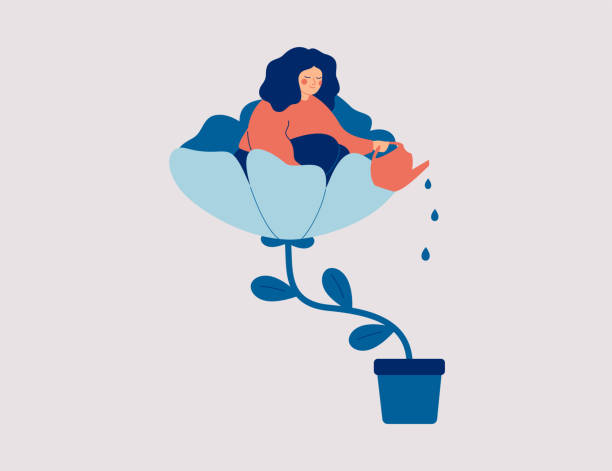
So if you’re like me and you also have a complicated relationship with needing or being needed, I’m just here to tell you IT’S OK. It’s ok to need others, it’s ok to help others in need, it’s maybe even ok to occasionally burn yourself out a little for the sake of helping others if that’s what you choose for yourself. Just don’t forget to give yourself some time and attention as well when everything is said and done. It’s also ok to need a little help sometimes, and it’s ok to ask for help from others as long as we are prepared to hear and respect the occasional “no”. That’s why it’s important to have a strong support network; none of us should be relying on any one single individual for all the times we need some help. Luckily I have a solid circle of friends and family and an awesomely vibrant, loving, and caring community of party people to lean on in times of need. If you’re reading this you’re probably a member of that circle or community, so lucky you, too! Also, don’t let this whole blog post discourage you, whether as a Trip! Peer or friend, I’m here for you as well! Don’t hesitate to reach out if you’re in need, because I’ll be able to say no if I need to. 🙂 <3
For those of you that need some suggestions or inspiration, here are a few things that help me check in with myself or address my own self-care!
- Journaling thoughts and feelings
- Daily quick tarot card readings
- Regular intense exercise, or a brisk walk in a pinch
- Basic self-care activities like brushing my teeth and actually flossing at least once a day
- The occasional meditation session
- Some peaceful time with a good book
- Or just any time alone and separate from people or noise or sensory inputs
- Turning off unnecessary app notifications
- Or even turning off important app notifications, like work-related ones, but then scheduling specific time to check those things
- Making time for a creative hobby of some kind
- Allowing myself the occasional day of laying around, zoning out, or hours-long video game sessions! Down time is important!
Written by Trip! Peer Natalia F-B